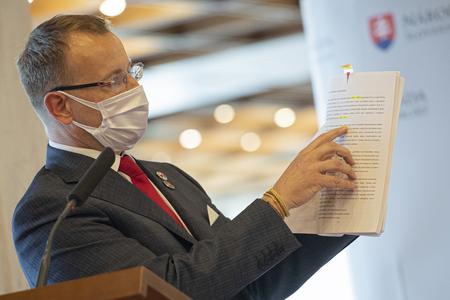The Council of Europe’s Group of States against Corruption (GRECO) has expressed disappointment in the slow progress of Slovakia in implementing measures to prevent corruption of MPs, judges and prosecutors.
The disappointment stems from a new compliance report assessing the country's progress in the implementation of 16 recommendations contained in its 4th Round Evaluation Report, issued on February 3.
“The overall response to the recommendations is disappointing,” GRECO wrote in the report. “Eight out of sixteen recommendations are still not fully implemented, more than five years after the adoption of the evaluation report.”
Missing code of ethics and lobbying rules
Slovakia has made no significant progress in the case of recommendations concerning the MPs.
Although the amendments to the Law on the Protection of General Interest have come into force, providing for the obligation to declare gifts or other benefits to lawmakers, and the use of their movable or immovable property, there has been no significant progress in terms of asset declaration, the GRECO said.
At the same time, the Council encouraged the authorities to finalise and apply a code of ethics for parliamentarians.
GRECO regrets that no political consensus has been found to enhance transparency in the legislative process, especially in regards to lobbying and disclosure of financial interests.
Problematic provisions related to judges
GRECO pointed to the lack of progress regarding judges. While the application of rules related to the declaration of assets has been strengthened, the interpretational rules of the Code of Judicial Deontology remain to be clarified, in particular for conflicts of interest.
The threshold beyond which received gifts must be declared remains high, according to GRECO.
The Council has welcomed legislative amendments, which oblige prosecutors to publicly disclose their assets above a certain value.




